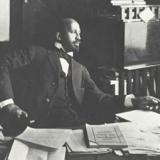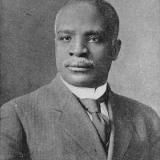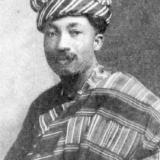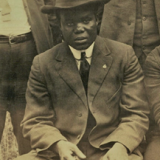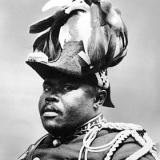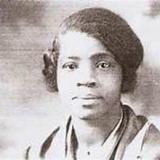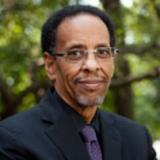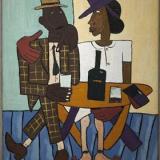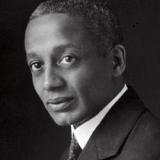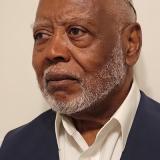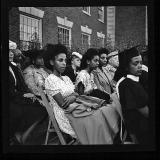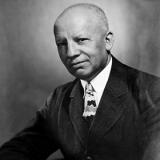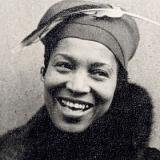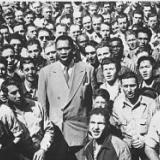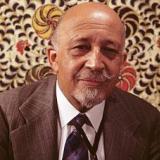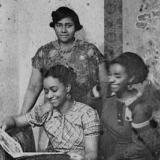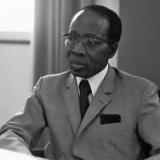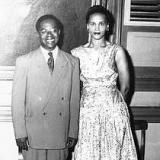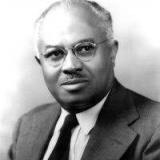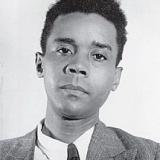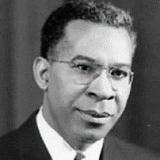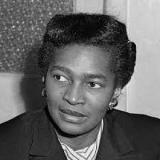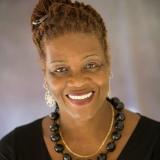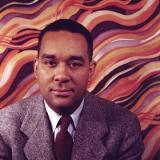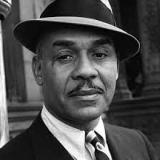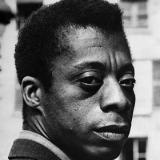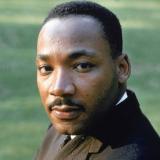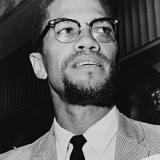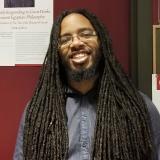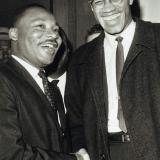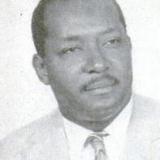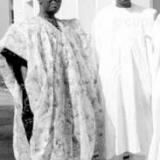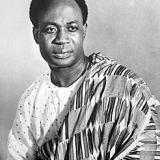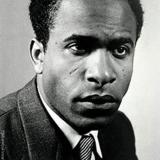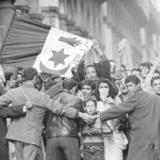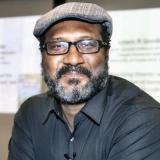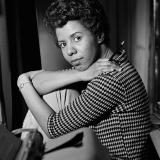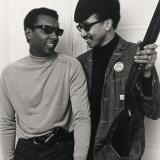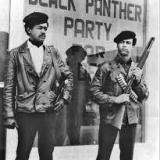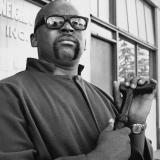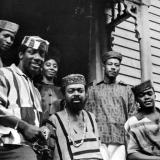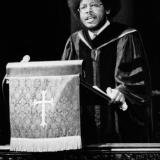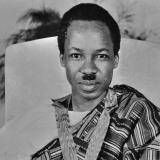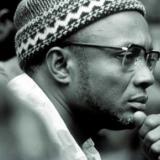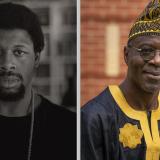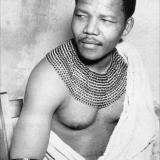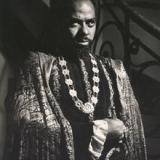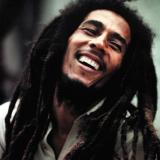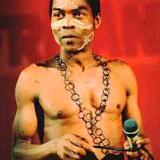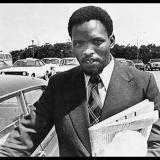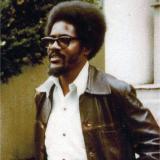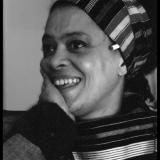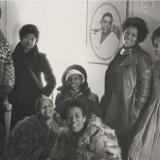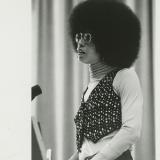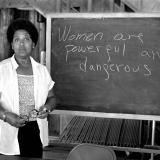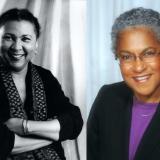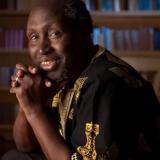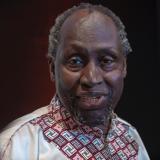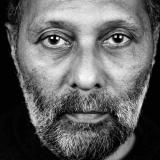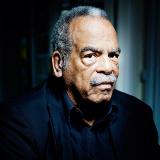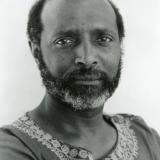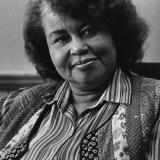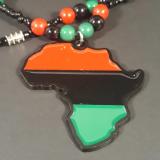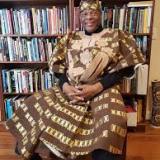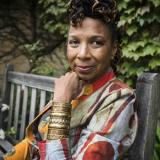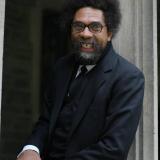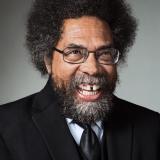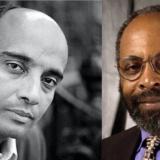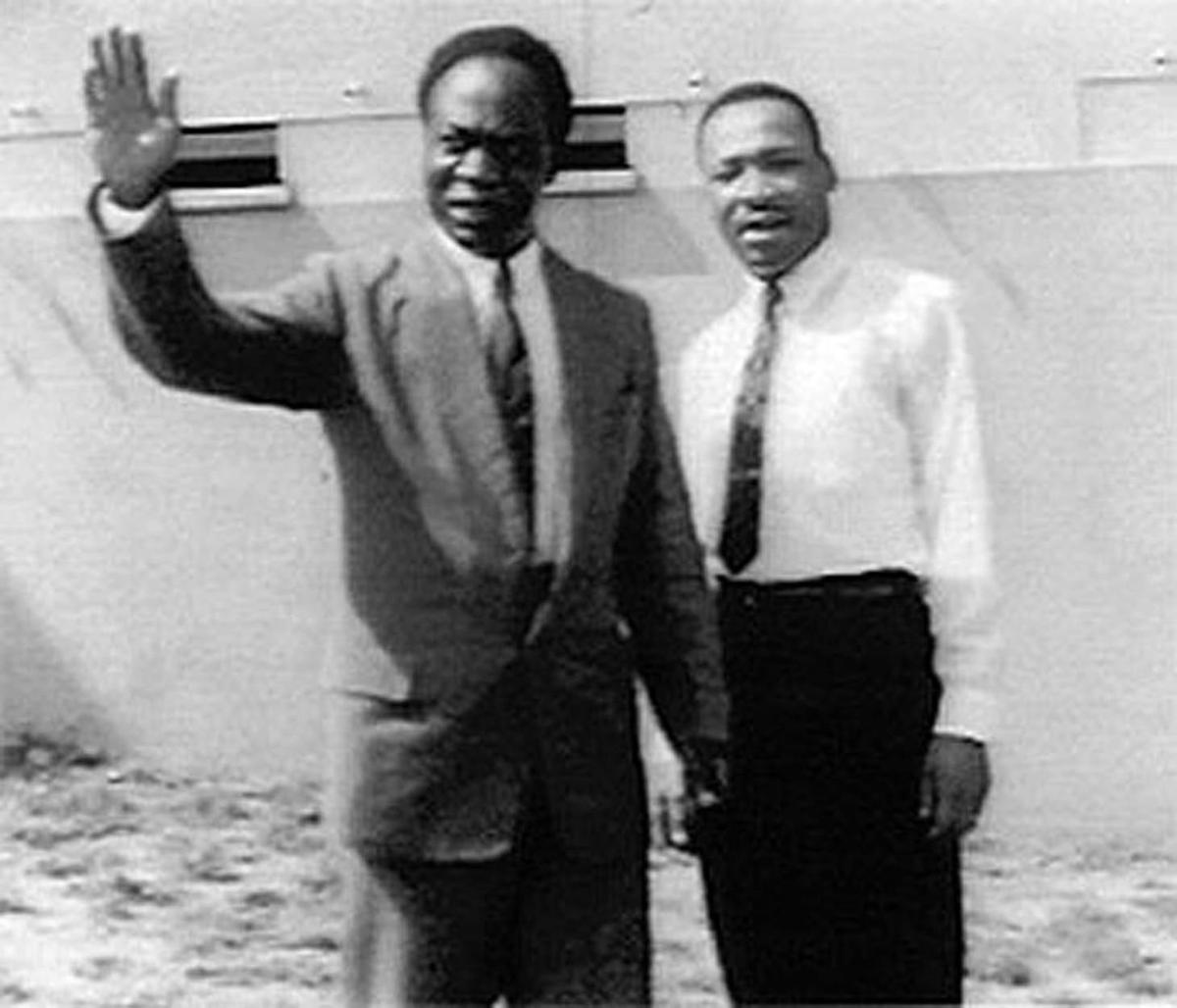Africana Philosophy in the Twentieth Century
The third and final series in our coverage of Africana Philosophy takes us to the relatively recent past. We begin around the turn of the century with the contribution of African-American intellectuals and activists, including such luminaries as W.E.B. Du Bois and Marcus Garvey, and cover movements such as African-American socialism and the famous "Harlem Renaissance," here touching on the work of key figures like Alain Locke and Zora Neale Hurston. We will continue to examine African-American philosophy as the series proceeds, taking the story all the way up to later thinkers like Martin Luther King Jr, and Malcolm X, rounding things off with the ideas of academic philosophers like Cornel West. But the series will not restrict itself to developments in the United States. A number of the thinkers covered will hail from the Caribbean, including the major Africana philosopher Frantz Fanon, and we will of course devote ample coverage to intellectuals in Africa itself. These will include politician-philosophers like Amílcar Cabral, Kwame Nkrumah, and Nelson Mandela. As always on the podcast, we will cast a wide net, and consider the philosophical relevance of figures more often thought of as literary figures, like Ralph Ellison, James Baldwin, and Toni Morrison, and even musicians like Bob Marley. We will be joined be a number of expert interview guests to provide further depth and detail; look out for episodes featuring Liam Kofi Bright, Tommy Curry, Michael Dawson, Vanessa Wills, and many more!
• A.B. Bogues, Black Heretics, Black Prophets: Radical Political Intellectuals (New York: 2003).
• L.R. Gordon, An Introduction to Africana Philosophy (New York: 2008).
• B. Guy-Sheftall, Words of Fire: An Anthology of African-American Feminist Thought (New York: 1995).
• L. Harris, Philosophy Born of Struggle: Anthology of Afro-American Philosophy from 1917 (Dubuque: 1983).
• P. Henry, Caliban's Reason: Introducing Afro-Caribbean Philosophy (New York: 2000).
• F.L. Hord (Mzee Lasana Okpara) and J.S. Lee (eds), I Am Because We Are: Readings in Africana Philosophy, revised ed. (Amherst: 2016).
• P.E. Joseph, Waiting 'til the Midnight Hour: A Narrative History of Black Power in America (New York: 2006).
• R. July, The Origins of Modern African Thought: Its Development in West Africa During the Nineteenth and Twentieth Centuries (New York: 1967).
• D.L. Lewis, When Harlem Was in Vogue (New York: 1981).
• T.L. Lott and J.P. Pittman (eds), A Companion to African-American Philosophy (Malden: 2003).
• J.H. McClendon III and S.C. Ferguson II, African American Philosophers and Philosophy: An Introduction to the History, Concepts, and Contemporary Issues (New York: 2019).
• J. McDade (ed.), The Philosophical Forum: Special Issue: Philosophy and Black Experience 9 (Winter-Spring 1977-1978).
• J.A. Montmarquet and W.H. Hardy (eds), Reflections: An Anthology of African American Philosophy (Belmont: 2000).
• L.T. Outlaw, Jr., On Race and Philosophy (New York: 1996).
• J.P. Pittman (ed.), African-American Perspectives and Philosophical Traditions (New York: 1996).
• R. Rabaka, Africana Critical Theory: Reconstructing the Black Radical Tradition, from W.E.B. Du Bois and C.L.R. James to Frantz Fanon and Amilcar Cabral (Lanham: 2009).
• C.J. Robinson, Black Marxism: The Making of the Black Radical Tradition (London: 1983).
• T. Serequeberhan, Our Heritage: The Past in the Present of African-American and African Existence (Lanham: 2000).
• T. Shelby, We Who Are Dark: the Philosophical Foundations of Black Solidarity (Cambridge MA: 2005)
• N.P. Singh, Black is a Country: Race and the Unfinished Struggle for Democracy (Cambridge, MA: 2005).
• P. Von Eschen, Race Against Empire: Black Americans and Anticolonialism, 1937-1957 (Ithaca: 1997).
• G. Yancy (ed.), African-American Philosophers: 17 Conversations (New York: 1998).
Posted on
By exploring the work and activities of W.E.B. Du Bois around the turn of the twentieth century, we introduce some of the themes of our coverage of that century.
Posted on
The ANA unites leading African American scholars of the early 20th century, including W.E.B. Du Bois, Paul Laurence Dunbar, William Ferris, Archibald Grimké, and Kelly Miller (pictured).
Posted on
We chat with Tommy Curry about African-American thought between the turn of the century and the Harlem Renaissance.
Posted on
West African intellectuals like J.E. Casely-Hayford (pictured) and Mojola Agbebi build upon Edward Blyden’s ideas at the dawn of the twentieth century.
Posted on
Around the time of World War One, Hubert Harrison (pictured), A. Philip Randolph, and other black socialists argue that racial oppression is caused by capitalism.
Posted on
Vanessa Wills speaks to us about Marx and his Africana legacy, with a special focus on black women Marxists.
Posted on
Marcus Garvey leads a powerful movement, inspires racial pride, and feuds with other thinkers like Du Bois.
Posted on
Marcus Garvey’s two wives, Amy Ashwood Garvey and Amy Jacques Garvey (pictured), establish themselves as activists in their own right and provide feminist voices within the Pan-African movement.
Posted on
An interview with Michael Dawson, who explains Marcus Garvey's black nationalism and how this and other political ideologies, like socialism and liberalism, have fared from the time of Garvey down to the present day.
Posted on
The artistic flowering of the 1920s known as the Harlem Renaissance raises important questions about identity and the purpose of art.
Posted on
The aesthetics of Alain Locke and its basis in his theory of value judgments.
Posted on
Leonard Harris explains how Locke's value theory was the basis for his aesthetics and theories of democracy and race.
Posted on
From the latter half of the nineteenth century to the 1970s, African Americans only rarely obtain jobs as philosophy professors but bring distinctive perspectives to the profession.
Posted on
Pioneering historian Carter G. Woodson argues for a new approach to education and economic uplift.
Posted on
Zora Neale Hurston’s interest in Africana folklore feeds into her great novel Their Eyes Were Watching God.
Posted on
The career of the multi-talented activist and performer Paul Robeson, and the place of the Negro spiritual in the Harlem Renaissance.
Posted on
Du Bois moves to the left, and revisits and refines older positions during the latter half of his very long life.
Posted on
Guest Liam Kofi Bright discusses Du Bois' ideal of value-free science and the place of science within his wider thought.
Posted on
Our first look at the emergence of the Negritude movement in Paris in the 1930s, with a focus on the early leadership of the Nardal sisters and Leon Damas.
Posted on
Leopold Senghor compares different ways of knowing while developing his theory of Negritude and combining the roles of poet and politician.
Posted on
Negritude thinkers Aimé and Suzanne Césaire embrace surrealism and reflect on the relationships between poetry, knowledge, and identity.
Posted on
Sociologist E. Franklin Frazier critiques the Harlem Renaissance and the “black bourgeoisie” for failing to embrace values that will empower black Americans.
Posted on
The Trinidadian historian and cultural critic C.L.R. James applies Marxist analysis to the Haitian Revolution, American cinema, and Shakespeare.
Posted on
Two Trinidadian political thinkers: sociologist Oliver Cox analyzes the nature of racial prejudice, and historian Eric Williams connects capitalism to slavery.
Posted on
Claudia Jones argues that Communism provides the remedy for racism and imperialism.
Posted on
Interview guest Carole Boyce Davies joins us to talk about the radical ideas of Claudia Jones.
Posted on
Famous for his incendiary novel Native Son, Richard Wright responds in his multifaceted writings to sociology, communism, colonialism, and existentialism.
Posted on
Ralph Ellison provides a new metaphor for the experience of racism in his Invisible Man and tackles topics of art and identity in his essays.
Posted on
In The Fire Next Time and other writings, the essayist and novelist James Baldwin seeks to dispel the illusions surrounding racial and sexual difference.
Posted on
The story of Martin Luther King Jr. up to 1963, focusing on the development of his philosophy of nonviolence.
Posted on
An interview about the role of the emotions, including anger and feelings of dignity, in the non-violent protest campaign of King.
Posted on
The life and career of Malcolm X up to 1963, with a focus on his separatist black nationalism and his critique of non-violent protest.
Posted on
Chike joins Peter to look back at our coverage of Africana philosophy in the first half of the 20th century.
Posted on
After 1963, the views of Malcolm X and MLK came closer together, on topics including internationalism, political engagement, and economics.
Posted on
The Cuban activist and author Juan Rene Betancourt urges racial solidarity and reckons with the revolution under Castro and the island’s turn towards Communism.
Posted on
Two Nigerian activists lead the struggle for independence, and clash over the competing values of national unity and ethnic diversity.
Posted on
The first leader of independent Ghana, Kwame Nkrumah, writes against neocolonialism and in favor of socialism and Pan-Africanism.
Posted on
Frantz Fanon combines psychoanalysis and existential phenomenology to diagnose neuroses deriving from the colonial condition.
Posted on
Fanon’s incendiary final work explores the violent process of decolonization.
Posted on
We're joined by a leading Fanon expert to talk about a range of themes in his work: Negritude, psychiatry, and violence.
Posted on
The author of the famous play, A Raisin in the Sun, explores questions of violence, sexuality, and more during her too brief life.
Posted on
How the controversial slogan “black power,” used by activists like H. Rap Brown and Stokely Carmichael (pictured), relates to ideas of militancy, separatism, and the power of language.
Posted on
The philosophical underpinnings of a “vanguard of revolution” led by Huey P. Newton, Bobby Seale, and Eldridge Cleaver: the Black Panther Party.
Posted on
The Pan-Africanist philosopher Maulana Karenga defends the importance of cultural revolution and invents the holiday Kwanzaa.
Posted on
African American literature of the late 1960s reflects the Black Power movement, in the works of such authors as Amiri Baraka, Nikki Giovanni, Haki Madhubuti, Larry Neal, and Sonia Sanchez.
Posted on
After Albert Cleage and James Cone propose a liberatory interpretation of Christianity, William R. Jones wonders whether God is a white racist. We also follow Black Theology among “Womanist” authors and in South Africa.
Posted on
The first leader of independent Tanzania grounds his socialist ideas in traditional African values.
Posted on
Amílcar Cabral, leader of a revolution against colonialism in Guinea-Bissau and Cape Verde, rethinks culture and Marxist theory as bases for his struggle.
Posted on
Two scholars of the same name join us to shed further light on freedom fighter and political theorist Amílcar Cabral.
Posted on
The career and ideas of Nelson Mandela up to the time of his imprisonment, in the context of the founding of the African National Congress.
Posted on
Abdias do Nascimento, a leader in Brazilian theater and politics, and his theory of Quilombismo.
Posted on
Sun Ra and Parliament-Funkadelic return to claim the pyramids, and Octavia Butler uses science fiction to confront the brutal past of slavery.
Thanks to Stephan Terre for the creation of the futuristic intro music!
Posted on
How the Rastafari movement grew from trends within Africana philosophy, and then passed into global popular culture in the music of Bob Marley and other reggae artists.
Posted on
The political and musical revolution of Fela Kuti’s Afrobeat, the social critique of his cousin, the playwright Wole Soyinka, and the extraordinary career of Fela's mother Funmilayo.
Posted on
Famous for his killing at the hands of the Apartheid government in South Africa, Steve Biko was also a deep thinker, who introduced the notion of Black Consciousness.
Posted on
Pan-Africanist and Marxist historian Walter Rodney rethinks Black Power, engages with Rastafari, and opposes racial division in his home country of Guyana.
Posted on
Toni Cade Bambara, the Combahee River Collective, the Brixton Black Women's Group, and Awa Thiam critique white feminist and black nationalist failures to recognize the unique struggle of the black woman.
Posted on
Toni Morrison, Alice Walker, and Maya Angelou explore the themes of black feminism (or “womanism”) in their fiction.
Warning: this episode contains discussion of sexual violence and suicide.
Posted on
The eventful life and penetrating philosophy of Angela Davis, an icon of resistance deeply informed by Marxism and influential on black feminist thought.
Posted on
In poetry and prose, especially her collection Sister Outsider, Audre Lorde explores ideas of difference, eroticism, and feminist theory.
Posted on
We bring the story of black feminism up to the turn of the century with the incisive works of bell hooks and Patricia Hill Collins.
Posted on
How one of Kenya's greatest writers came to argue that African literature should be written in African languages.
Posted on
The great Kenyan writer Ngũgĩ wa Thiong'o joins us to speak about his career, his influences, and the power and politics of language.
Posted on
Stuart Hall pioneers “cultural studies,” offering tools for analysis of films, television, fiction and music that were put to use by followers like Paul Gilroy and Hazel Carby.
Thanks to Glenn Adamson for his feedback on this episode!
Posted on
Poet, novelist, playwright and philosopher Edouard Glissant, his theory of "creolization", and the Creolists who were influence by him.
Posted on
The author of an important book on Glissant joins us to talk about his approach to this major Caribbean thinker.
Posted on
Cedric J. Robinson reflects on the power and limitations of Marxism while charting the past and prospects of black radical thought.
Posted on
Sylvia Wynter offers a bold and provocative assessment of the role of the humanities in understanding humankind.
Posted on
Writers like George G.M. James, John Henrik Clarke, Cheikh Anta Diop, Yosef ben-Jochannan, and Chancellor Williams prepare the way for the Afrocentricity of Molefi Asante and capture the imaginations of hip hop artists and intellectuals like Ta-Nehisi Coates.
Posted on
What inspired Asante's philosophy of Afrocentricity, and its relationship to religion, nationalism, and feminism.
Posted on
A movement of legal scholars diagnoses the limitations of merely “formal” measures against discrimination, a point they connect to issues like affirmative action, democratic process, and intersectionality.
Posted on
An introduction to the thought of Cornel West, focusing on his early essay “Philosophy and the Afro-American Experience.”
Posted on
Cornel West joins us to look back on the development of his thought and the many authors who have inspired him.
Posted on
The key events and figures in philosophy as an academic discipline, in both Africa and the diaspora, from the 1970s to the 1990s.
Posted on
How Africana philosophy looked to a young Chike Jeffers, coming into the field in the early 21st century.




